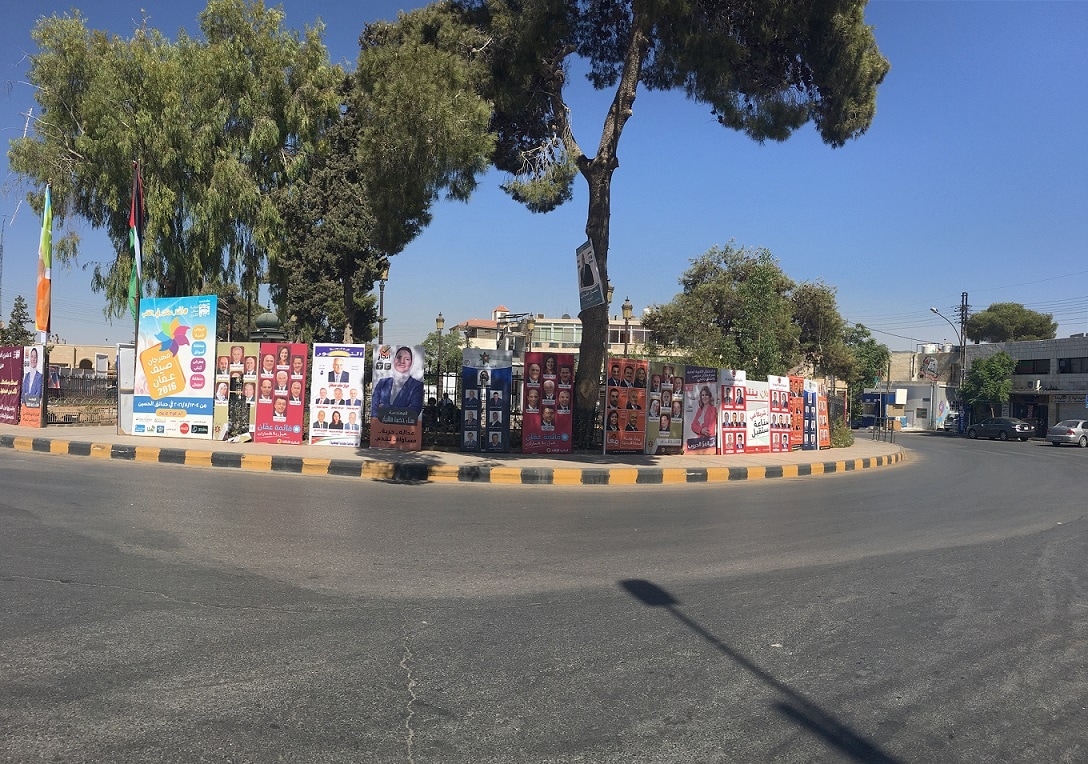By Kaleigh Ambrose, Journalist at CTV/ Media Trainer
It’s been nearly 48 hours into my journey in Jordan, and I find myself at a loss for words. Already, I’ve experienced so much in so little time, and I look forward to the abundance of knowledge and experience I’ll gain over the next 3 weeks here.
So where to begin?
I arrived in Amman after a 27-hour journey from Toronto. I was immediately captured by Amman’s beauty…and I arrived in the dark! It was hard not to be entranced by the stars that spilled out in every direction over the empty black desert/sea (not quite sure which one I was looking at, it was 2 am after all). It was quite symbolic arriving at night, being welcomed by the unknown, but excited for the opportunity ahead.
So why am I here? CTV News has partnered with a media development organization called Journalists for Human Rights – training journalists on all kinds of platforms, from different backgrounds, and at various levels and skill sets. I’m here to run a 3-day workshop with Syrian and Jordanian journalists, to exchange information and knowledge on info-graphics and incorporating multimedia into everyday reporting.
After a tour of Amman on day one with JHR trainer, Mohammed Shamma, the real work began.
Day two started off with a visit to 7iber – pronounced ‘hibber’ – an online publication in Jabal Al Wiebdeh, a bustling part of Amman, atop a steep hill. We drove there of course, as Amman’s topography isn’t exactly conducive with walking – it’s a culture of cars in a city of hills.
7iber started off as a platform for bloggers to publish their blogs. They contracted with professional journalists soon after to publish more in-depth and informative stories, and then became what they are today.
Their office is definitely different than CTV back home. The close-knit team of dynamic young workers share a converted multi-bedroom-turned-office apartment space. It will be interesting to work in the open and airy atmosphere in the coming weeks.
A quick walk throughout this part of the city, and any part for that matter, and it’s clear there’s an election looming just around the corner. On September 20th, voters will head to the polls to elect their preferred party.
Colourful campaign posters line all the street lamps and available wall space, looking to earn the Jordanian vote.
This year’s election is special – it has the most women in Jordan’s history up for election. There’s at least one woman in each party. Mohammed Shamma explained there’s a new law to fill a quota to make sure that women are a part of Parliament.
Next stop was the Art & Tea Café – appropriately named with walls filled with posters, an old television converted into a fish tank, and of course… tea!
Mohammed Shamma and I sat down with Ezz Natour, one of the journalists participating in the workshop and someone I’ll be working closely with on a project throughout my 3-week stay.
Sitting down sipping Turkish coffee with the call to prayer – or “Athan,” as I was taught – echoing in the background, the three of us discussed an idea for a human rights story that we can cover while I’m in Jordan.
What Ezz Natour came up with was eye opening. He started off by telling us the story of a famous boxing club in a refugee camp that was suddenly shut down. This place was the perfect space for youth in the Baqa’a refugee camp to have something to do; it has even produced a few Olympians and World Champions.
Baqa’a refugee camp was created in 1968 and sits about 20 kilometers north of Amman. It’s home to roughly 100,000 Palestinian refugees, and started out as an emergency refugee camp for Palestinians fleeing the West Bank and Gaza Strip during the Arab Israeli War in 1967.
Nowadays, it’s more like a bustling city, but it isn’t free from its problems. Ezz Natour explained that these sorts of places have become hot spots for recruiting extremists to go off to Syria.
Ezz Natour is hoping to find a few characters to help illustrate the problems faced in this particular camp, and why people turn to extremism. What’s changed in the camp that has led to extremism? He used the permanent closure of the boxing camp – something for youth to do and enjoy – as a potential example of services no longer available.
The three of us sat at the café, going back and forth with ideas, on how exactly to cover this kind of story. While it seems like a tall task, it’s an important one to cover, and a look inside a camp that isn’t necessarily top of mind for many Jordanians, or people in general.
Ezz Natour is a journalist hoping to expand his knowledge and develop his work on more platforms than just online. That’s where I come in. I suggested ways to incorporate multimedia, info-graphics, and posting longer, raw interviews online in a link within the story.
Right away, it was a perfect example of the exchange of information that’s supposed to take place here, and to be frank; I’m more excited than ever to help.
Tomorrow is another day of touring media facilities here in Jordan, and with the progress already made on day two, I can’t wait to see what’s in store.



